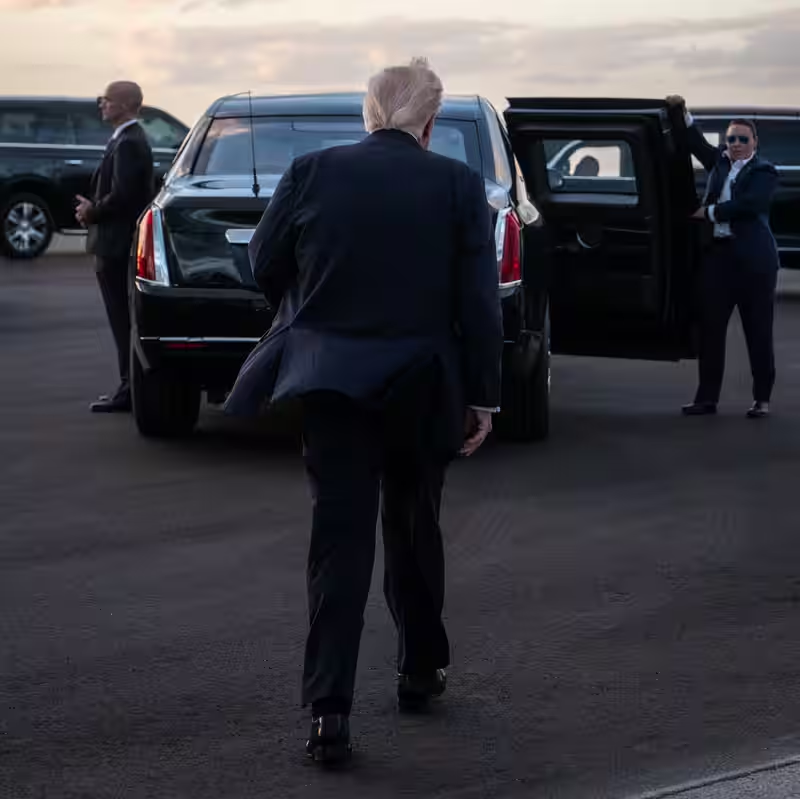The White House is facing intense scrutiny after asserting that the president holds wartime authority to summarily kill individuals suspected of drug smuggling—without presenting any legal justification for such a sweeping claim.
White House Claims Power to Kill: A Dangerous Precedent?
In a move that has alarmed constitutional scholars and human rights advocates alike, the administration has refused to articulate any legal basis for its assertion that the commander-in-chief can order lethal force against suspected drug traffickers outside traditional war zones. This stance effectively bypasses due process, judicial oversight, and long-standing international legal norms.
The controversy stems from a series of deadly strikes in the Caribbean Sea, where U.S. forces have targeted speedboats allegedly linked to narcotics trafficking. These operations have resulted in the deaths of at least 32 people across seven separate incidents . The White House has framed these actions as part of an “armed conflict” with transnational drug cartels, invoking wartime logic to justify lethal force .
What Legal Framework Is Being Cited?
Despite repeated requests, the administration has not provided a coherent legal argument explaining how domestic drug enforcement qualifies as an international armed conflict under the Geneva Conventions or the U.S. Constitution. Some officials have vaguely referenced the Alien Enemies Act—a 1798 law designed for wartime internment of foreign nationals—but legal experts argue it does not authorize extrajudicial killings .
“There is no recognized legal doctrine that permits a president to unilaterally declare a war on drug cartels and then execute suspects without trial,” said Dr. Elena Martinez, a constitutional law professor at Georgetown University. “This isn’t just aggressive policy—it’s a direct challenge to the rule of law.”
Timeline of Escalation
| Date | Event | Fatalities |
|---|---|---|
| Sept 2025 | First reported strike on suspected drug boat | 14 |
| Early Oct 2025 | Second strike near Puerto Rico | 11 |
| Mid-Oct 2025 | Cumulative total of Caribbean strikes | 32+ |
These operations appear coordinated, with intelligence suggesting the use of drones and naval assets . Yet, no evidence has been publicly released confirming that those killed were armed combatants or posed an imminent threat—key requirements under international humanitarian law.
Global and Domestic Backlash
Human rights organizations have condemned the strikes as potential violations of the right to life and due process. The United Nations Office on Drugs and Crime (UNODC) has called for an independent investigation, warning that such actions could destabilize regional security and set a dangerous global precedent .
Domestically, members of Congress from both parties have demanded briefings and legal memos justifying the policy. So far, the White House has declined to share internal legal opinions, citing executive privilege.
What’s at Stake?
Beyond the immediate loss of life, this policy threatens foundational democratic principles. If a president can redefine drug trafficking as an act of war—and then kill suspects without trial—what prevents future expansions of this power? Could environmental activists, undocumented immigrants, or political dissidents be next?
The absence of transparency is perhaps the most troubling aspect. A functioning democracy requires accountability, especially when the state wields lethal force. By flouting legal norms and refusing to engage with oversight bodies, the White House isn’t just making policy—it’s testing the limits of executive power in real time.
Sources
- The New York Times: The Peril of a White House That Flaunts Its Indifference to the Law
- Washington Post: White House Circulates Draft Bill Granting Broad War Powers
- AP News: Trump Says US Is in ‘Armed Conflict’ with Drug Cartels
- Just Security: Trump’s Strikes in the Caribbean Are a Dangerous, Illegal Escalation
- Reuters: Timeline of US Attacks in the Caribbean




